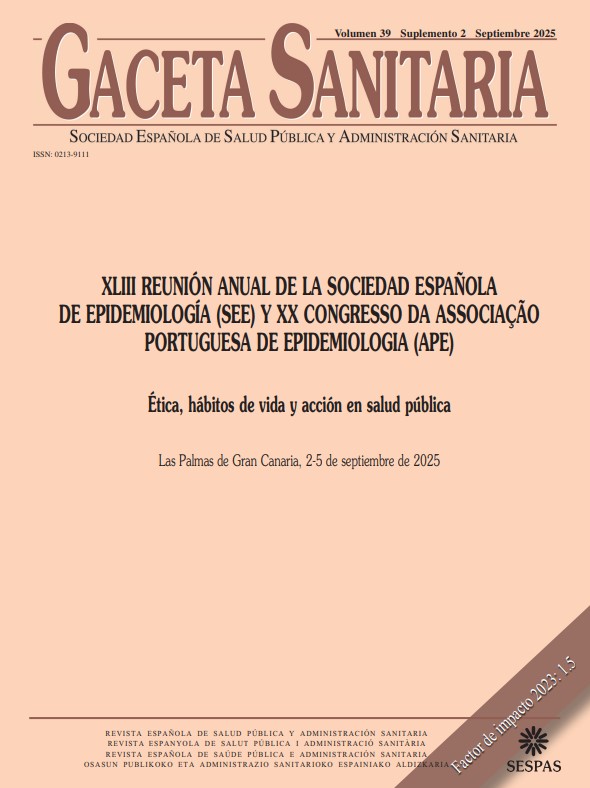387 - IS CANCER INCREASING IN YOUNG ADULTS IN SPAIN? INCIDENCE TRENDS FOR THE PERIOD 1993-2018
CIBER de Epidemiología y Salud Pública CIBERESP; Instituto de Investigación Biosanitaria de Granada ibs.GRANADA; Escuela Andaluza de Salud Pública; Hospital Universitario Virgen de las Nieves; Registro de Cáncer de Tarragona; REDECAN, Spanish Network of Cancer Registries.
Background/Objectives: Recent data suggest that the incidence of several types of cancer is increasing in adults under 50 years of age. We analysed the trends in cancer incidence in young adults in Spain for the period 1993-2018.
Methods: We analysed new incident cases in adults between 20-49 years old diagnosed in the period 1993-2018, using data from the 15 population-based cancer registries of the Spanish Network of Cancer Registries. For each combination of sex and anatomical site, we calculated truncated age-standardised rates per 100,000 persons using the European new standard population (TASR-E), and used joinpoint regression to analyse TASR-E trends and compute Annual Percent Change (APC).
Results: 153,599 new cases (58% in women) were diagnosed in young adults between 1993 and 2018. The most common sites were breast (N = 37,820 cases) and thyroid (N = 7,022) in women, and lung (N = 7,425) and testicular cancer (N = 5,306) in men. For all cancers (except non-melanoma skin cancer), incidence decreased in young men from 120.9 in 1993 to 94.3 in 2018 (APC = -1.4%; 95%CI: -1.5%; -1.2%), and increased in young women from 134.3 in 1993 to 166.9 in 2018 (APC = +0.7%; 95%CI: +0.5%; +0.9%). Breast cancer increased in young women, with an APC of +1.0%, whereas colon and rectum cancers remained stable in women (APC = 0.0% and +0.1%, respectively) and decreased slightly in men (APC = -0.7% and -0.4%, respectively).
Conclusions/Recommendations: Overall cancer incidence in Spain increased slightly in young women, and decreased in young men, with pronounced differences by anatomical site. Data until 2018 do not reflect the worrying increasing trends in breast and colorectal cancer observed in other developed countries. Understanding these patterns is crucial for developing targeted prevention and early detection strategies to address the existing cancer burden in younger populations.
Funding: Subprogram VICA CIBERESP, Proyecto intramural de fortalecimiento del Área de Oncología de ibs.GRANADA (2024).















